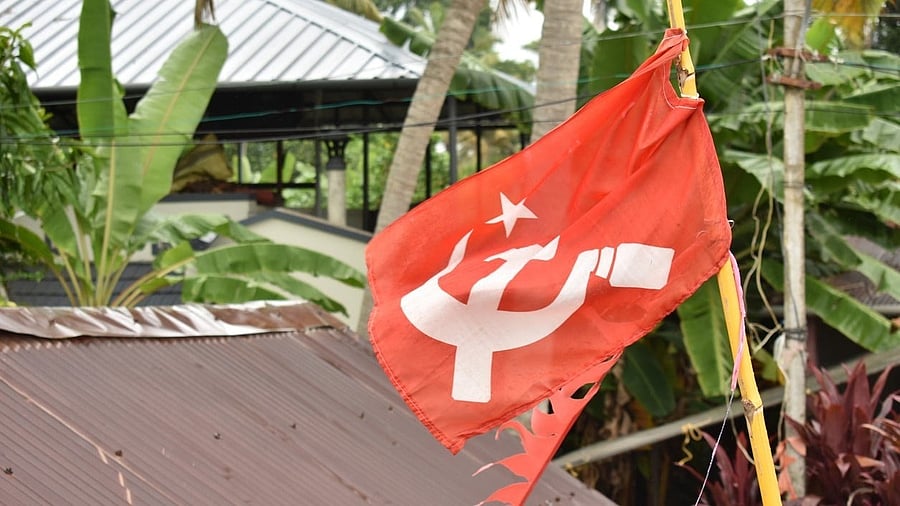
A representative image of CPI(M) flag.
Credit: iStock Photo
New Delhi: In an unusual explanation to its Draft Political Resolution for the 24th Party Congress in April, the CPI(M) central leadership has told its state units that the party does not consider the Narendra Modi government or the Indian State “fascist or neo-fascist”.
This is different from the positions of other major Left parties CPI, which calls the Modi dispensation a “fascist government”, and the CPI(ML)L, which says that “an Indian fascism has been put in place”. The latest articulation is likely to trigger further debate in the CPI(M).
It said the Political Resolution is only talking about the danger of Hindutva corporate authoritarianism going towards neo-fascism if the BJP-RSS is not fought back and halted. Incidentally, the draft resolution has also described the BJP as the political front of the “fascistic RSS”.
The CPI(M) letter said the draft resolution has highlighted that the political set-up under the BJP-RSS is displaying “neo-fascist characteristics”. The word ‘characteristics’ means features or trends but they have not developed into a neo-fascistic government and political set-up, it said.
“We are not saying the Modi government is a fascist or neo-fascist government. Nor are we characterising the Indian State as a neo-fascist State,” the ‘Note on the Use of the Term Neo-Fascism’, circulated among state units, said.
“What we are pinpointing is that after ten years of continuous rule by the BJP, which is the political wing of the RSS, there has been a consolidation of political power in the hands of the BJP-RSS and this is resulting in the manifestation of neo-fascist characteristics,” it said.
The CPI(M) had witnessed intense internal deliberations over characterising the BJP with late General Secretary Sitaram Yechury's line of describing the BJP-RSS as “fascistic” prevailing even as the faction led by Prakash Karat, who is presently the coordinator of CPI(M) Polit Bureau following the former's death last September, argued it was only authoritarian in nature.
In the resolutions adopted in the previous two previous triennial conferences when Yechury was General Secretary, the CPI(M) had spoken about authoritarian and communal attacks exhibiting “emerging fascistic trends” (2018) and the Modi government carrying out “fascistic agenda of the RSS” (2022).
However, the letter to state units said, the CPI(M) has “for the first time used” the term “neo-fascist” in its resolution while explaining the national political situation. It went on to differentiate fascism as classical fascism, which developed during imperialism, and neo-fascism developed during neoliberalism.
The CPI(M) note said the neo-fascists, unlike classical fascists, utilise elections to advance their political project and do not dispense with the electoral system though they use authoritarian methods to suppress the Opposition. Such a regime seeks to bring about changes in the State structure for a longer time working from within.
Sources indicated that the change in focus on defining the Modi government, if carried forward by the Party Congress, leads to a change in relationship with the Congress in the fight against BJP.
